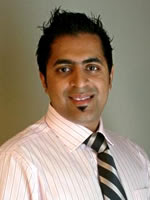You know your toothbrush is a vital tool for the proper care of your teeth – but do you know the best way to take care of your toothbrush? Following are some guidelines for toothbrush care from
19th Street Dental:
 One toothbrush should have one owner.
One toothbrush should have one owner.If you share your toothbrush, you could also be sharing bodily fluids and bacteria, increasing your risk of infection.
Toothbrushes need privacy, too. For the same reason, when storing brushes, make sure they are placed in such a way that they can't touch each other.
Give your toothbrush some space. Keep your brush in a clean, well-ventilated spot and make sure it has time to dry in between uses. Keeping your toothbrush in a closed, moist space regularly can encourage the growth of germs.
Showering is good for your toothbrush. Before and after each use, rinse your toothbrush under running water to eliminate excess toothpaste and other residue. Rub your fingers along the bristles – but only after washing your hands; no use substituting one set of germs for another. When you're finished, shake out the brush to accelerate drying.
Let your toothbrush indulge in a nice bath. You may be able to reduce the amount of bacteria on your brush by soaking it in anti-bacterial mouthwash after each use.
Don't get too attached to your toothbrush. Swap your old toothbrush for a new one at least as often as every three to four months. Keep an eye out for frayed bristles and replace sooner if necessary. The more worn the bristles, the less effective brushing is. Of course, if you've been sick with the flu, a cold, or a mouth infection, say goodbye to your toothbrush and move on to a new, germ-free one immediately.
Beware of too-good-to-be-true toothbrush-cleaning products. Some products profess to being designed to "sanitize" your toothbrush. According to the American Dental Association (ADA), there is no conclusive evidence that these products provide any particular benefit to your health. The ADA also encourages consumers to be wary of products claiming to "sterilize" your toothbrush, as there is currently no data to support such claims.
Don't trust Aunt Minnie's toothbrush-cleaning advice. Although they certainly mean well, and they're clearly creative, your friends and relatives with home-cooked ideas about cleaning toothbrushes may not be the safest sources of information. Dishwashers, microwaves, and boiling water are no substitute for simply buying a new brush – and in fact could damage your brush, rendering it less effective.
Remember – what's good for the toothbrush is good for the teeth!
--
Dr. Patel










